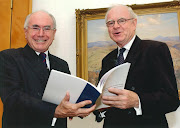SUBSTITUTION OF ADVERTISEMENTS INTO INTERNET PORTAL SITE
Illegality of Program that Substitutes or Inserts Different Advertisements Contained within an Internet Portal Site
On September 23, 2008, the Seoul High Court, 4th Civil Division ruled (2007 Ra 618) that developing and distributing software that deletes advertisements contained within an internet portal site and substitutes them with another’s advertisements, or inserts another’s advertisements in the empty spaces of an internet portal site constitutes interference with another’s business.
The plaintiff to this case was the operator of Korea’s largest internet portal site. The defendant to this case developed and distributed software that deletes advertisements contained within the plaintiff’s internet portal site, substitutes them with third parties’ advertisements, and also inserts third parties’ advertisements in the empty spaces of the plaintiff’s internet portal site. Installation of the defendant’s software occurred only upon confirmation of the user, and could be fully uninstalled at any time. Additionally, the advertisements substituted and inserted by the defendant’s software expressly stated that the advertisements originated from the defendant. As a result, the plaintiff filed for a preliminary injunction prohibiting the defendant from developing and distributing the software.
The court found that by replacing the advertisements provided by the plaintiff with its own advertisements and by using the empty spaces within the internet portal site, the defendant’s software caused the plaintiff’s internet portal site to have the appearance as if the defendant’s advertisements were those of the plaintiff’s. The court further found that when considering that the advertisements provided by the plaintiff were replaced in their entirety, and that the defendant was placing the advertisements of its customers at the top of its keyword search results, the defendant was taking away the benefits of such placement and therefore was severely interfering with the plaintiff’s business profits. The court opined that the defendant was taking advantage of the plaintiff’s reputation and customer drawing power without permission, and was free riding on the plaintiff’s long term efforts and investment in developing its internet portal site, and therefore was interfering with the plaintiff’s business. The court did not accept the plaintiff’s other claims of copyright infringement and violations of the Unfair Competition Prevention and Trade Secret Act.
Criminal charges were also brought against the defendant for violations under the Unfair Competition Prevention and Trade Secret Protection Act. However, the court found the defendant free of charge, ruling that the defendant’s business activities could not be seen to be utilizing the distinctiveness of the plaintiff’s trademark (Seoul Central District court, 2008 GoHap 312, issued January 16, 2009).
The ruling of this case is significant in that it is the first case regarding the illegality of programs that make unauthorized changes to websites operated by third parties.
Editor's not :I am indebted to the author of this article for permission to republish it here : Jae Hoon Kim of Lee & Ko; jhk@leeko.com; www.leeko.com.
Wednesday, April 1, 2009
Subscribe to:
Posts (Atom)

